
 How Healthy Is It To Eat Bananas Every Day?
How Healthy Is It To Eat Bananas Every Day?
An apple a day keeps the doctor away… but what about bananas?
Whether you’re adding them to your morning cereal or grabbing one to fuel up for a workout, many people regularly incorporate them into their diets on a daily basis. But some people also avoid them. So is it safe to eat them every day? Lauren Manaker, registered dietician nutritionist, filled us in everything we need to know about eating bananas.
First, let’s get to the nutrition. One medium banana, according to the USDA, has about 105 calories, 27 carbs, 14 grams of sugar, 5 grams fiber, and 422 mg of potassium. It’s also a good source of other nutrients like vitamin C, vitamin B6, and electrolytes, including magnesium, sodium, and of course, potassium… (Continue to full article)
The Best Foods You Can Eat For A Healthy Liver
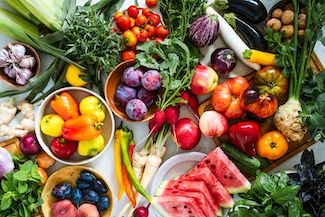 The liver is a large organ that comprises about 2% of the average adult’s body weight. Your liver is constantly working to keep you healthy by performing an array of vital functions, such as filtering harmful substances in your blood, breaking down toxins, and supporting metabolism, immune function, digestion, and more.1
The liver is a large organ that comprises about 2% of the average adult’s body weight. Your liver is constantly working to keep you healthy by performing an array of vital functions, such as filtering harmful substances in your blood, breaking down toxins, and supporting metabolism, immune function, digestion, and more.1
Following a nutritious diet rich in foods known to support and protect the liver can help prevent common liver diseases, such as non-alcoholic fatty liver disease (NAFLD), and promote optimal liver function.2
Here are 10 of the best foods for liver health, and other tips for preventing liver disease… (Continue to full article)
9 Superfoods With Physical and Mental Health Benefits to Incorporate in Your Diet
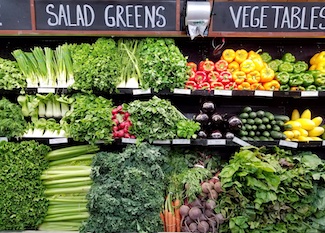 Superfoods such as berries, salmon and dark chocolate can boost brain health and protect the heart
Superfoods such as berries, salmon and dark chocolate can boost brain health and protect the heart
If you plan to improve your physical and mental health in 2024, incorporating superfoods into a balanced diet may be advantageous. Superfoods such as berries, salmon and dark chocolate can boost brain health and protect the heart.
Let’s take a look at nine superfoods worth adding to your diet… (Continue to full article)
18 Foods to Avoid to Reduce Cancer Risk
 A lot of research has been done to determine if there are links between cancer risk and certain foods. When isolated in a lab, some food components and chemicals have been shown to increase cancer risk, but these results are difficult to recreate in human populations, making the connection difficult, if not impossible, to prove.
A lot of research has been done to determine if there are links between cancer risk and certain foods. When isolated in a lab, some food components and chemicals have been shown to increase cancer risk, but these results are difficult to recreate in human populations, making the connection difficult, if not impossible, to prove.
According to the National Cancer Institute, comparing diets between people with and without cancer can show that they differ in their intake of certain things, but the results only indicate that these differences are associated with increased cancer risk, not that they are responsible for it. In other words, people with and without cancer may differ in the things they eat and drink, but they can vary in many other ways, too, which can also contribute to their condition.
Some research has determined that the following foods and chemicals may be associated with an increased cancer risk. However, it is crucial to remember that many factors can contribute to this disease and that avoiding these foods does not guarantee a lower risk of cancer… (Continue to full article)
The Plastic Chemicals Hiding in Your Food
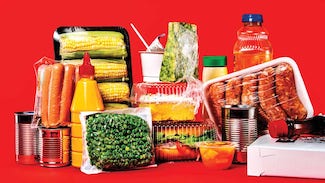 By the time you open a container of yogurt, the food has taken a long journey to reach your spoon. You may have some idea of that journey: From cow to processing to packaging to store shelves. But at each step, there is a chance for a little something extra to sneak in, a stowaway of sorts that shouldn’t be there.
By the time you open a container of yogurt, the food has taken a long journey to reach your spoon. You may have some idea of that journey: From cow to processing to packaging to store shelves. But at each step, there is a chance for a little something extra to sneak in, a stowaway of sorts that shouldn’t be there.
That unexpected ingredient is something called a plasticizer: a chemical used to make plastic more flexible and durable. Today, plasticizers—the most common of which are called phthalates—show up inside almost all of us, right along with other chemicals found in plastic, including bisphenols such as BPA. These have been linked to a long list of health concerns, even at very low levels
CR tested popular fast foods and supermarket staples for bisphenols and phthalates, which can be harmful to your health. Here’s what we found—and how to stay safer.. (Continue to full article)
Broccoli’s Anti-Cancer Compound Could Have a Whole Other Health Benefit
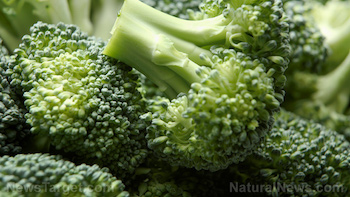 A chemical found naturally in broccoli could one day prevent and treat the blood clots that can lead to strokes – currently the second leading cause of death worldwide.
A chemical found naturally in broccoli could one day prevent and treat the blood clots that can lead to strokes – currently the second leading cause of death worldwide.
Platelets play a critical role in plugging up wounds to stop bleeding, but under specific circumstances can also form dangerous clots that block the flow of blood altogether. In life-critical tissues such as the brain and heart, every moment of lost oxygen risks irreparable damage.
A chemical commonly found in cruciferous vegetables such as broccoli, cauliflower, and broccoli sprouts stood out for its potential as an anticlotting agent. Called sulforaphane (SFN), the compound has already received attention in the past for its potential in preventing cancer and lowering cholesterol… (Continue to full article)
Billions Aren’t Eating Enough of 7 Critical Nutrients
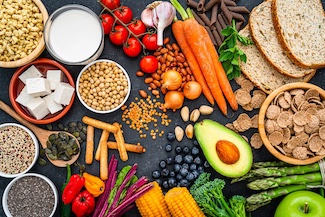 Here’s how to get them in your diet!
Here’s how to get them in your diet!
Nutrients such as iron and calcium are critical for blood and bone health, respectively. But more than half the global population isn’t eating enough of these and five other nutrients also crucial for human health, according to a new study.
More than 5 billion people don’t consume enough iodine, vitamin E or calcium, found the study published August 29 in the journal The Lancet Global Health. And more than 4 billion people have insufficient intake of iron, riboflavin, folate and vitamin C… (Continue to full article)


 U.S. Health Secretary Robert F. Kennedy Jr. recently told executives from top food companies that he wants artificial dyes out of the nation’s food supply before he leaves office, according to a food company trade association email.
U.S. Health Secretary Robert F. Kennedy Jr. recently told executives from top food companies that he wants artificial dyes out of the nation’s food supply before he leaves office, according to a food company trade association email. Researchers have discovered that a daily dose of vinegar could improve symptoms of depression, pointing to the possibility that future treatments might come with a few spoonfuls of sour.
Researchers have discovered that a daily dose of vinegar could improve symptoms of depression, pointing to the possibility that future treatments might come with a few spoonfuls of sour.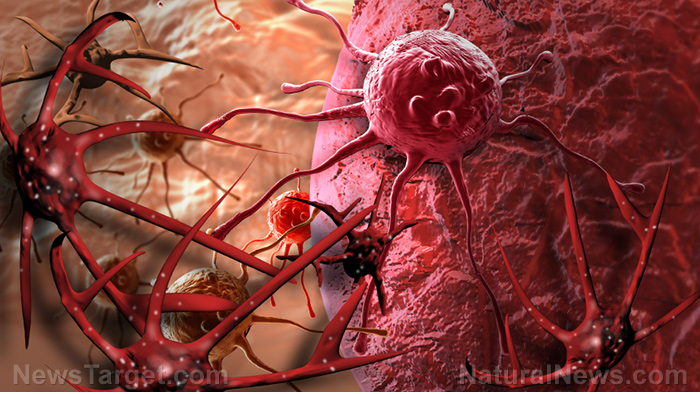 I have believed for a long time that the American Medical Complex and the Consumer Food and Beverage Industrial Complex have little interest in the prevention of disease. It makes far better business sense to let the population eat, drink and smoke to their heart’s content and then offer seemingly high tech and expensive methods for cleaning up the aftermath. In the United States, the food industry alone generates 500 billion dollars in sales: Bacon, eggs, milk, fast food franchises, soft drinks, fried food, dead food, overcooked food, sweets, treats and canned goods.
I have believed for a long time that the American Medical Complex and the Consumer Food and Beverage Industrial Complex have little interest in the prevention of disease. It makes far better business sense to let the population eat, drink and smoke to their heart’s content and then offer seemingly high tech and expensive methods for cleaning up the aftermath. In the United States, the food industry alone generates 500 billion dollars in sales: Bacon, eggs, milk, fast food franchises, soft drinks, fried food, dead food, overcooked food, sweets, treats and canned goods.
 How Healthy Is It To Eat Bananas Every Day?
How Healthy Is It To Eat Bananas Every Day? The liver is a large organ that comprises about 2% of the average adult’s body weight. Your liver is constantly working to keep you healthy by performing an array of vital functions, such as filtering harmful substances in your blood, breaking down toxins, and supporting metabolism, immune function, digestion, and more.1
The liver is a large organ that comprises about 2% of the average adult’s body weight. Your liver is constantly working to keep you healthy by performing an array of vital functions, such as filtering harmful substances in your blood, breaking down toxins, and supporting metabolism, immune function, digestion, and more.1 Superfoods such as berries, salmon and dark chocolate can boost brain health and protect the heart
Superfoods such as berries, salmon and dark chocolate can boost brain health and protect the heart A lot of research has been done to determine if there are links between cancer risk and certain foods. When isolated in a lab, some food components and chemicals have been shown to increase cancer risk, but these results are difficult to recreate in human populations, making the connection difficult, if not impossible, to prove.
A lot of research has been done to determine if there are links between cancer risk and certain foods. When isolated in a lab, some food components and chemicals have been shown to increase cancer risk, but these results are difficult to recreate in human populations, making the connection difficult, if not impossible, to prove. By the time you open a container of yogurt, the food has taken a long journey to reach your spoon. You may have some idea of that journey: From cow to processing to packaging to store shelves. But at each step, there is a chance for a little something extra to sneak in, a stowaway of sorts that shouldn’t be there.
By the time you open a container of yogurt, the food has taken a long journey to reach your spoon. You may have some idea of that journey: From cow to processing to packaging to store shelves. But at each step, there is a chance for a little something extra to sneak in, a stowaway of sorts that shouldn’t be there. A chemical found naturally in broccoli could one day prevent and treat the blood clots that can lead to strokes – currently the second leading cause of death worldwide.
A chemical found naturally in broccoli could one day prevent and treat the blood clots that can lead to strokes – currently the second leading cause of death worldwide. Here’s how to get them in your diet!
Here’s how to get them in your diet!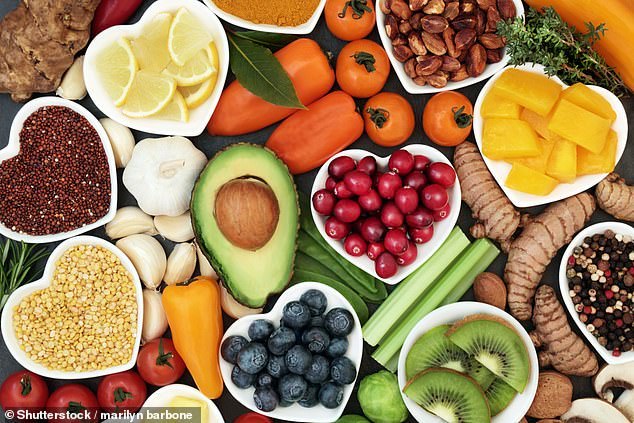 Fiber is an important part of a healthy diet because it helps keep us regular and feeling full. It has a number of other health benefits for the body, from the gut to the heart. But most Americans don’t eat nearly enough of it.
Fiber is an important part of a healthy diet because it helps keep us regular and feeling full. It has a number of other health benefits for the body, from the gut to the heart. But most Americans don’t eat nearly enough of it.
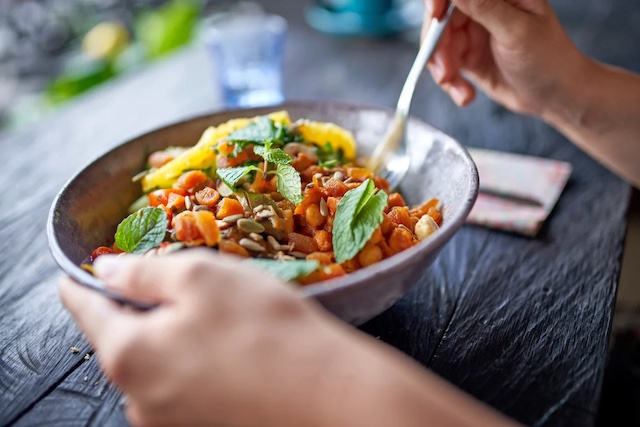 A plant-based diet is associated with a reduced risk of heart disease, cancer and death, according to a large-scale review published Wednesday.
A plant-based diet is associated with a reduced risk of heart disease, cancer and death, according to a large-scale review published Wednesday.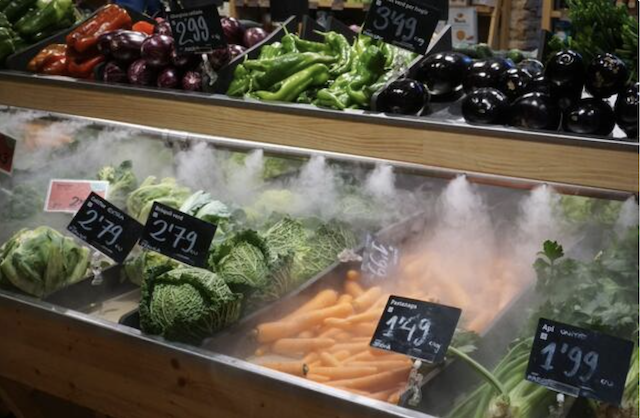 There has been an increase in awareness among Americans regarding their food choices. Consumers are now more committed to avoiding ultra-processed foods, seed oils, and artificial additives. There are growing concerns about using toxic pesticides to cultivate fruits and vegetables.
There has been an increase in awareness among Americans regarding their food choices. Consumers are now more committed to avoiding ultra-processed foods, seed oils, and artificial additives. There are growing concerns about using toxic pesticides to cultivate fruits and vegetables. The study by researchers at Michigan State University (MSU) found that rice, wheat, leafy green vegetables, baby foods and dark chocolates with high heavy metal concentrations are connected to the thousands of cancer cases each year. Foods contaminated with metals such as lead and cadmium were linked to cases of bladder and lung cancer.
The study by researchers at Michigan State University (MSU) found that rice, wheat, leafy green vegetables, baby foods and dark chocolates with high heavy metal concentrations are connected to the thousands of cancer cases each year. Foods contaminated with metals such as lead and cadmium were linked to cases of bladder and lung cancer. According to the American Cancer Society, an estimated 1,762,450 new cancer cases were diagnosed before the end of 2019. Of that number, approximately 606,880 Americans, nearly 1,662 each day, died.
According to the American Cancer Society, an estimated 1,762,450 new cancer cases were diagnosed before the end of 2019. Of that number, approximately 606,880 Americans, nearly 1,662 each day, died.